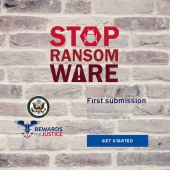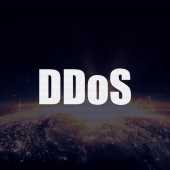-
Google warns 14,000 Gmail users targeted by Russian hackers
Google has warned about 14,000 of its users about being targeted in a state-sponsored phishing campaign from APT28, a threat group that has been linked to Russia.
- October 07, 2021
- 07:38 PM
 0
0
-
U.S. govt to sue contractors who hide breach incidents
Under the new Civil Cyber-Fraud Initiative that the U.S. Department of Justice announced today, government contractors are accountable in a civil court if they don't report a breach or fail to meet required cybersecurity standards.
- October 06, 2021
- 08:01 PM
 0
0
-
RaidForums forced to use mirror after Brazilian govt contacts registrar
The RaidForums hacking forum has gone through a turbulent week, with its website now forced through a mirror domain after a government filed a legal request with their registrar.
- October 04, 2021
- 01:00 PM
 0
0
-
US govt sites showing porn, viagra ads share a common software vendor
Multiple U.S. government sites using .gov and .mil domains have been seen hosting porn and spam content, such as Viagra ads, in the last year. A security researcher noticed all of these sites share a common software vendor, Laserfiche.
- September 17, 2021
- 06:11 AM
 1
1
-
Canada accepted 7,300 more immigration applications due to technical bug
A bug in the Canadian immigration system led to the government accepting an additional 7,307 immigration applications, surpassing the imposed limit. This comprised files from international graduate stream applicants aspiring to change their temporary visa status to permanent residency.
- August 31, 2021
- 12:02 AM
 0
0
-
Brazilian government discloses National Treasury ransomware attack
The Brazilian Ministry of Economy has disclosed a ransomware attack that hit some of National Treasury's computing systems on Friday night, right before the start of the weekend.
- August 17, 2021
- 09:36 AM
 0
0
-
Secret terrorist watchlist with 2 million records exposed online
A secret terrorist watchlist with 1.9 million records, including "no-fly" records was exposed on the internet. The list was left accessible on an Elasticsearch cluster that had no password on it.
- August 16, 2021
- 12:55 PM
 1
1
-
Estonia arrests hacker who stole 286K ID scans from govt database
A Tallinn man was arrested a week ago in Estonia under suspicion that he has exploited a government photo transfer service vulnerability to download ID scans of 286,438 Estonians from the Identity Documents Database (KMAIS).
- July 29, 2021
- 05:13 PM
 0
0
-
US govt offers $10 million reward for tips on nation-state hackers
The United States government has taken two more active measures to fight and defend against malicious cyber activities affecting the country's business and critical infrastructure sectors.
- July 16, 2021
- 02:46 PM
 0
0
-
Mexico walls off national lottery sites after ransomware DDoS threat
Access to Mexico's Lotería Nacional and Pronósticos lottery websites are now blocked to IP addresses outside of Mexico after a ransomware gang threatened to perform denial of service attacks.
- May 28, 2021
- 01:14 PM
 0
0
-
Microsoft: Russian SVR hackers target govt agencies from 24 countries
The Microsoft Threat Intelligence Center (MSTIC) has discovered that the Russian-backed hackers behind the SolarWinds supply-chain attack are now coordinating an ongoing phishing campaign targeting government agencies worldwide.
- May 28, 2021
- 08:08 AM
 0
0
-
Japanese government agencies suffer data breaches after Fujitsu hack
Offices of multiple Japanese agencies were breached via Fujitsu's "ProjectWEB" information sharing tool. Fujitsu states that attackers gained unauthorized access to projects that used ProjectWEB, and stole some customer data.
- May 27, 2021
- 03:21 AM
 0
0
-
UK govt seeks advice on defending against supply-chain cyberattacks
Today, the UK government has announced a call for advice on defending against software supply-chain attacks and ways to strengthen IT Managed Service Providers (MSPs) across the country. The move comes after last week when President Biden had issued an executive order to increase cybersecurity defenses across the U.S.
- May 17, 2021
- 12:48 PM
 0
0
-
Ongoing attacks are targeting unsecured mission-critical SAP apps
Threat actors are targeting mission-critical SAP enterprise applications unsecured against already patched vulnerabilities, exposing the networks of commercial and government organizations to attacks.
- April 06, 2021
- 09:00 AM
 0
0
-
FBI warns of BEC attacks increasingly targeting US govt orgs
The Federal Bureau of Investigation (FBI) is warning US private sector companies about an increase in business email compromise (BEC) attacks targeting state, local, tribal, and territorial (SLTT) government entities.
- March 19, 2021
- 10:09 AM
 1
1
-
Researchers hacked Indian govt sites via exposed git and env files
Researchers have now disclosed more information on how they were able to breach multiple websites of the Indian government. The full findings disclosed today shed light on the routes leveraged by the researchers, including finding exposed .git directories and .env files on some of these systems.
- March 12, 2021
- 11:46 AM
 0
0
-
CISA takes over .GOV top-level domain (TLD) administration
The US Cybersecurity and Infrastructure Security Agency (CISA) is taking over the administration of the .GOV top-level domain (TLD) as its new policy and management authority starting next month.
- March 08, 2021
- 09:56 AM
 0
0
-
US government warns of Social Security scams using fake federal IDs
Government imposter scams now come with a new twist that has the potential to make them even more effective, as the Inspector General for the Social Security Administration (SSA) warns.
- March 03, 2021
- 12:47 PM
 0
0
-
Russian hackers linked to attack targeting Ukrainian government
The National Security and Defense Council of Ukraine (NSDC) has linked Russian-backed hackers to attempts to compromise state agencies after breaching the government's document management system.
- February 24, 2021
- 12:08 PM
 0
0
-
Ukraine: DDoS attacks on govt sites originated from Russia
The National Security and Defense Council (NSDC) of Ukraine is accusing threat actors located on Russia networks of performing DDoS attacks on Ukrainian government websites since February 18th.
- February 23, 2021
- 08:56 AM
 3
3


























